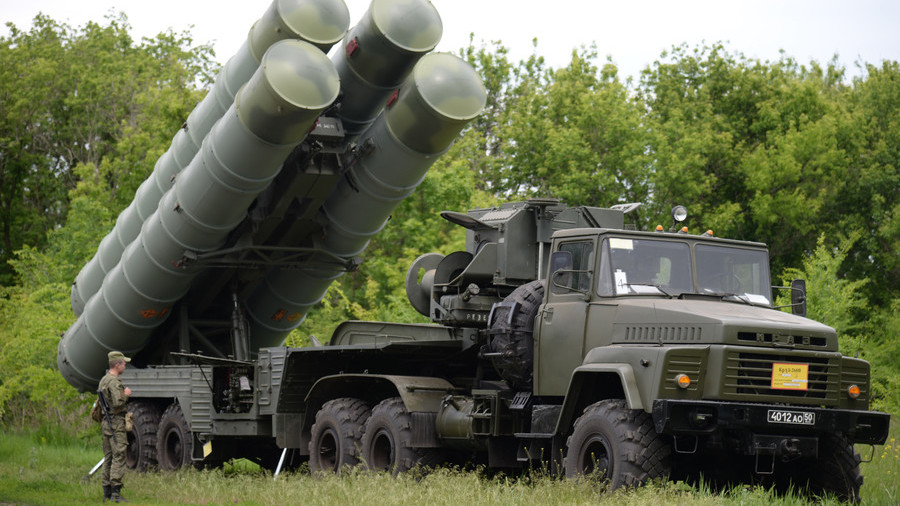‘49
pieces of hardware’: Syria gets S-300 missile system & more
from Russia in wake of Il-20 downing

RT,
2
October, 2018
The
S-300 air defense system and dozens of additional hardware pieces
have been delivered to the Syrian military to boost security of
Russian personnel there, Russian Defense Minister, Sergey Shoigu,
told President Vladimir Putin.
“We
have completed the delivery of the S-300 system,” Shoigu
said Tuesday. The hardware supplied to Syria consisted of 49 pieces
of military equipment, including radars, control vehicles and four
launchers, he added.
The
delivery is meant to protect Russian troops in Syria, coming in wake
of the downing of a Russian reconnaissance plane in mid-September.
A
unified air defense control system in Syria will be completed by
October 20, Shoigu told the Security Council. Russia will “prepare
and train” the
Syrian crews to operate the S-300 within three months.
Earlier,
Shoigu said that Syrian air-defense posts will be equipped with
automated control systems that were previously only supplied to the
Russian military.
The
reinforced Syrian defenses will be able to suppress satellite
navigation, radars and communications systems of combat planes over
the Mediterranean Sea. This, Shoigu said, might “cool
some hotheads down and avert them from ill-judged acts that endanger
our troops.”
The
delivery is a response to the downing of the Russian Il-20
reconnaissance plane in Syria on September 17. The aircraft, with 15
servicemen on board, was mistakenly shot down by Syrian air-defense
units during an Israeli raid. While Israel has publicly denied any
responsibility, Moscow has presented radar data showing that an
Israeli F-16 jet used the plane as a cover. The incident has caused
some tension between Russia and Israel, with the latter blaming Syria
and its ally Iran for the downing.
From Hal Turner
The
first battery of the Russian-made S-300 air-defense missile system
has come into service, my former colleagues in the Intelligence
Community reported on Tuesday.
The
Russian Ministry of Defense sent new anti-aircraft missiles to Syria,
a week after Syrian forces accidentally shot down a Russian aircraft
Il-20 during an Israeli air strike, on September 17.
Russia
has blamed the incident on Israel and said that the Israel Defense
Forces (IDF) used the Russian Il-20 as a shield. The Israeli side has
refuted these statements, saying that they had notified the Russian
side in due time.
Moscow
has publicly said it would send four battalions of S-300 to Syria
within two weeks, but at least SIX such systems have already arrived
via air (wheeled transport vehicles) and several others are already
en-route via ship (tracked vehicles) according to my Intel sources.
The
S-300 air defense missile system can cover facilities on the Syrian
coast and monitor the Syrian border with Israel as well as with
Jordan, Iraq and Lebanon.
The
source explained that the number of battalions of the S-300 is now
expected to rise to 8 or more, depending on developments and
conditions as needed.
Israeli
military expert told the Russian online newspaper “Vzglyad” that
Israel will not attack the S300 missiles due to political – not
technical – reasons.
“Technically,
everything is possible. But this is not the case. The main issue lies
in that supplying Syria with S300 missiles might bring Russian and
Israel on the brink of a direct military confrontation”, he
commented.
“There
is a clear understanding in Israel that S300 missiles will completely
close the Israeli airspace”, said Uzi Rubin; founder of the Israeli
agency for developing the missile defense system and a co-founder of
HETZ anti-missile system. The truth, however, is that while the
S-300 can monitor all of Israeli airspace, its effective interception
area is only about 150km from launch point, meaning it cannot destroy
aircraft in ALL of Israeli air space.

No comments:
Post a Comment
Note: only a member of this blog may post a comment.